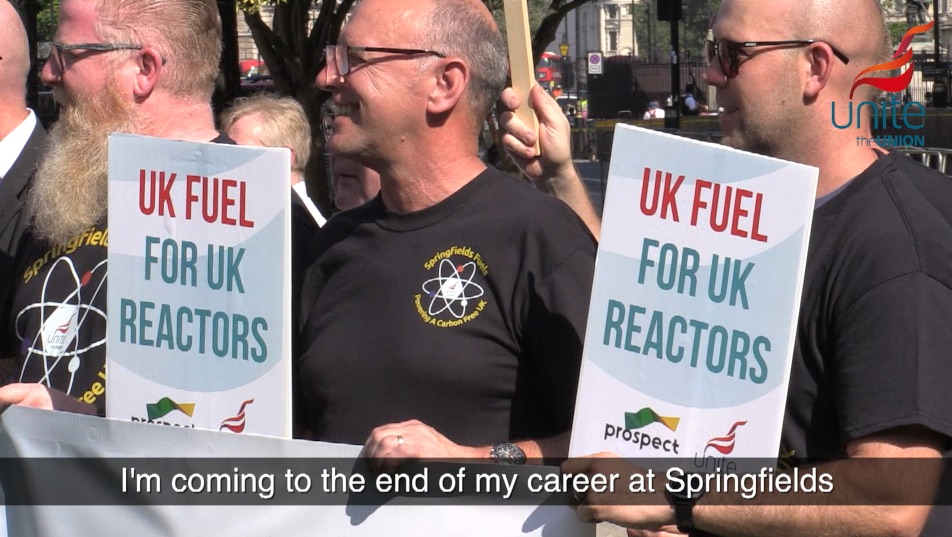Energy policy lights out
Unite has said Hitachi’s announcement today (17 January) that work is being suspended on a £20bn nuclear power station is proof the “lights are going out on a coherent UK energy policy”.
Hitachi said it was suspending work on the Wylfa Newydd plant in Anglesey, north Wales, because of rocketing construction costs.
Around 9,000 jobs will be at risk if the power station’s construction is shelved permanently.
The Japanese company has been in talks with the government since June over costings for the nuclear plant, which is supposed to be completed by the middle of next decade.
Having failed to reach an agreement with the government, Hitachi said building the project on the current terms would leave the firm with “extraordinary losses” of £2.1bn.
The decision to suspend construction was made “from the viewpoint of its economic rationality as a private enterprise”, the firm added.
Work on another Hitachi site, in Oldbury, Gloucestershire, has also been suspended “until a solution can be found”.
Sorry saga
Unite said the announcement was “the latest chapter in the sorry saga of recent UK energy policy”.
“The decision taken today by Hitachi is a disaster for the UK economy and future energy needs of the country. This government should be held to account as it has no coherent policy and has, yet again, let the country down. The lights are going out when it comes to energy policy,” said Unite national officer for energy Peter McIntosh.
“There are very real concerns over how we will keep the lights on for industry and consumers in the coming decades. Without Wylfa being built, there is no way the country can meet its climate change obligations which it committed to when it signed up to the Paris Agreement in 2016.”
On top of the Wyfla decision, there are a number of factors that are leading to a crisis over how the energy needs of businesses and households will be met in the decades ahead.
These include the withdrawal of Toshiba from the Moorside nuclear power station project in Cumbria in November and the controversy over the financing of the Hinkley Point nuclear in Somerset being built by French company EDF, with a stake from Chinese state-owned investor CGN.
There are also security concerns over future Chinese involvement in the UK nuclear programme as well as worries over the reluctance ofthe Tories to commit to large-scale funding of essential infrastructure projects.
McIntosh said, “Business secretary Greg Clark needs to step up to the plate and recalibrate energy policy with a vigorous commitment to substantial government funding for large-scale energy infrastructure projects.”
Devastating
Unite Wales regional secretary Peter Hughes said the news was “devastating” for the Welsh economy and particularly for north west Wales.
“The future regeneration on the region has been based upon the bedrock that Wylfa Newydd would proceed. For that to now be suspended is a hammer blow to the future prospects of some of most economically deprived communities in the whole of Wales,” Hughes said.
“Although this decision has ultimately been made by Hitachi, the UK government must take a massive share of the blame. It has failed miserably to put its full weight behind this bid and to effectively advocate the case for Wylfa Newydd.”
Hughes added, “For the prime minister Theresa May to fail to raise Wylfa Newydd with the Japanese prime minister Shinzo Abe last week was shameful.
“The UK government’s complete obsession with its disastrous Brexit strategy has meant it has completely took its eye off the ball in getting this crucial infrastructure project over the line. Theresa May’s government is failing Wales at every turn.”
 Like
Like Follow
Follow

